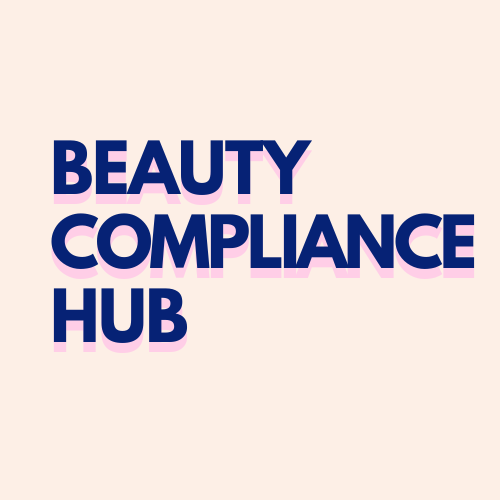Cosmetic and Personal Care Trends to Watch in 2025 – What Your Brand Needs to Know 🌱📈
The beauty industry is constantly evolving, shaped by changing consumer behaviours, technological innovations, and a growing focus on sustainability and inclusivity. As we move through 2025, several key trends are emerging that will define the future of cosmetics and personal care. For brands looking to stay ahead, these are the must-watch trends driving the industry this year.
From personalised skincare solutions powered by AI to waterless formulations that reduce our carbon footprint, the beauty landscape is transforming rapidly. Today’s consumers are more informed and discerning than ever. They expect more from their beauty products, not just in terms of performance but also in how those products align with their values. Sustainability, inclusivity, personalization, and wellness are no longer just buzzwords; they are essential components of a successful beauty brand. This shift is reshaping the landscape, creating exciting opportunities for brands that are ready to innovate and connect with a new generation of conscious consumers.
For upcoming beauty brands, the stakes are high but the potential rewards are even higher. To stand out in this competitive market, it’s crucial to stay ahead of the trends shaping the future of beauty. Whether it’s leveraging AI for personalised skincare, or embracing gender-neutral formulations, these trends offer a roadmap to success in 2025 and beyond.
We’ll dive into 10 of the most influential trends driving the beauty industry this year. Get ready to be inspired, because the future of beauty is bright, diverse, and filled with limitless potential.
1. Personalised Skincare Kits 🌐💧
With the rise of AI and biotech, personalised skincare has become more precise and accessible. Brands are leveraging AI-powered diagnostic tools to offer tailored solutions, including customisable serums, moisturisers, and treatments based on real-time skin data. Subscription models that adjust to changing skin needs are also gaining popularity. Personalisation isn’t just a perk, it’s becoming a consumer expectation.
2. Wellness-Infused Beauty Products 🧘♀️🌱
Consumers are increasingly seeking products that support overall wellness, not just surface-level beauty. Expect to see more formulations with adaptogens, probiotics, and nootropics designed to reduce stress, improve sleep, and boost mental clarity. Think mood-enhancing facial mists, sleep-inducing body oils, and calming scalp treatments.
3. Waterless Beauty Essentials 💧❌
As water scarcity becomes a global concern, brands are innovating with waterless formulations like solid shampoos, powdered cleansers, and concentrated skincare bars. These products not only reduce water usage but also minimise packaging waste, making them a win for both consumers and the environment.
4. Hybrid Skincare-Makeup Products 💄🧴
Busy consumers love multitasking products. Hybrid beauty items like tinted serums, BB creams with SPF, and lip and cheek tints with nourishing botanical oils are becoming essentials. These products offer the benefits of skincare with the instant payoff of makeup, catering to the minimalist beauty trend.
5. Inclusivity and Diversity🌎🌈
The push for inclusivity in beauty continues, with brands expanding their shade ranges and haircare options for diverse textures. Consumers want to see themselves represented, making inclusivity a non-negotiable aspect of brand identity.
6. ‘Clean’ and Conscious Beauty Lines 🌿♻️
‘Clean beauty’ is here to stay (regardless if the term itself is misleading). Today’s consumers demand transparency, ethical sourcing, and products with ‘free from’ formulas. Brands that embrace this trend often stand out by prioritising biodegradable packaging and carbon-neutral production.
7. Gender-Neutral Personal Care ⚧️🪞
With a growing focus on self-expression, brands are moving away from gendered marketing. Versatile, multi-functional formulations with simple, minimalist packaging appeal to a broader audience, breaking down traditional beauty norms.
8. Biotech-Driven Skincare 🧬🧪
Biotech is transforming skincare, offering lab-grown actives like collagen, peptides, and hyaluronic acid. Fermentation-based skincare is also gaining traction, providing potent, effective ingredients with a lower environmental footprint.
9. Functional Fragrances 💫🪴
Fragrances are evolving beyond just scent they now offer therapeutic benefits. Expect to see perfumes and body mists infused with essential oils designed to reduce stress, enhance focus, or promote relaxation, integrating wellness into everyday routines.
10. E-Commerce-First Product Lines 🛒📲
With the shift to online shopping, DTC (Direct-to-Consumer) brands are thriving. Personalised online experiences, virtual try-on tools, and subscription models are helping brands create deeper connections with their customers.
Embrace the Future of Beauty
As the beauty industry becomes more competitive and innovative, brands that adapt to these emerging trends will be perfectly positioned to capture the hearts (and wallets) of modern consumers. Whether it’s through cutting-edge biotech or personalised skincare, the future of beauty is bright, diverse, and driven by conscious choices. 🌟
So, as we move deeper into 2025, it’s clear that beauty is no longer just about looking good, it’s about feeling good, making conscious choices, and embracing diversity. The future is bright, and the opportunities are limitless. Ready to innovate? Now is the time! 💥









